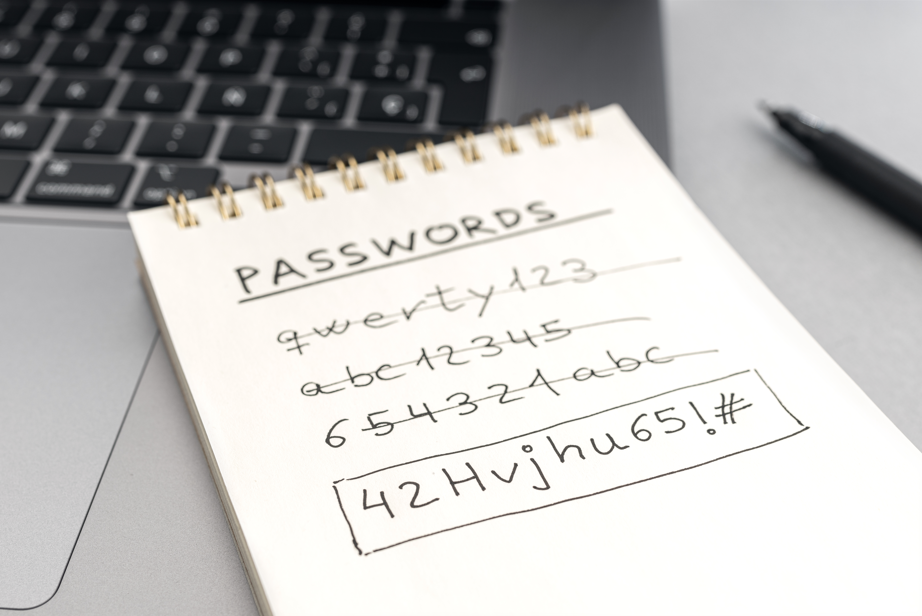10 Signs You’re a Victim of Fraud or Identity Theft

There’s no shortage of ways you can become a victim of fraud or identity theft. That’s because there’s no shortage of thieves looking to con you out of your money or to get your personal information to do serious damage.
In fact, there were 6.5 million fraud and identity theft reports lodged with the Federal Trade Commission in 2024 alone. And victims reported losing $12.5 billion to fraud.
The best way to reduce your risk of becoming a victim is to recognize the red flags of scams and fraud. However, even the savviest consumer still can fall prey. That’s why it’s important to always be on the lookout for signs that your personal or account information has fallen into the wrong hands. Then, you can act quickly to limit the damage.
Here are 10 clues that you’re a victim of fraud or identity theft.
Unusual activity in your bank or credit card account
If you see charges or transactions in your bank or credit card accounts that you don’t recognize, this likely is a sign that someone has your account number and is making purchases or withdrawals. Contact your bank or credit card issuer immediately to report the fraudulent activity.
To catch fraudulent transactions when they happen, make sure you sign up with your bank or credit card company to receive account transaction alerts. Or use a monitoring service such as Carefull to be alerted to unusual activity on your accounts.
[ Read: Beware of Scams Targeting Your Bank Account ]
New accounts or bills from unknown lenders
If you’re getting bills for accounts you didn’t open or debt collection notices for amounts you don’t owe, this could be a sign that your identity has been stolen. Someone might have used your personal information to open accounts in your names. So don’t assume that unusual bills are a mistake. Contact the company that sent them to find out what is going on.
To prevent more fraudulent accounts from being opened in your name, place a credit or security freeze on your credit reports at each of the three credit bureaus. You’ll need to lift the freeze if you want to open new lines of credit. But it will stop any attempts from thieves who try to open credit in your name. You can the credit bureaus’ websites to place a freeze on your reports.
Missing bills
If any of your monthly bills stop showing up, this could be a sign that thieves have changed the address on your accounts or have stolen your mail to get your account information. Log into your accounts or call your service providers to check the address they have on file for your account.
You can reduce the risk that thieves snatch bills from your mailbox by having them sent electronically. Just make sure you check your account profile regularly to ensure that your contact information is accurate.
Missing Social Security benefit payment
Although Social Security benefits are deposited electronically, it is possible for thieves to steal your benefits if they get your Social Security number. They might try to apply for benefits in your name if you haven’t already filed for benefits. Or, if you’re already receiving benefits, they might switch the bank account where benefits are deposited.
The best way to keep tabs on your benefits—even before you retire—is to sign up for an online my Social Security account. If you spot unusual activity in your account, see a change in your address or bank deposit information, or if payments go missing, contact the Social Security Administration immediately.
Strange medical bills or insurance statements
If you receive a bill or an insurance statement of benefits for medical services you didn’t receive, it could be a sign that your health insurance or Medicare information was stolen and used to file claims for someone else. Contact your healthcare provider and insurer immediately to alert them to the fraudulent claim.
Another sign that you’re a victim of health insurance fraud is if you file a claim and are denied coverage because records show that you have reached your benefits limit. If you haven’t filed many claims during the year, this could mean that someone else has used your information to file claims.
Unfamiliar account login alerts
If you get an alert that there was an attempt to log into one of your accounts from a different device, investigate it. It might be that you logged in from another computer or a new mobile device.
However, if you don’t recognize the login attempt, it could be a sign that someone has stolen your username and password and is accessing your account. Check the account for fraudulent activity, and report any that you find. Then change the username and password for the account.
Unusual changes to your credit score or credit report
You should be keeping tabs on your credit score and checking your credit report for signs of fraud. If your score drops unexpectedly, it could be a sign that someone has opened accounts in your name. Accounts on your credit report that you don’t recognize also are a sign that your identity has been stolen.
Signing up for a credit monitoring service such as Carefull makes it easy to catch fraud quickly because you’ll be alerted whenever there are changes to your credit report. Also, Carefull provides up to $1 million in identity theft insurance to help you repair the damage if you become a victim.
[ Read: How to Check Your Credit Report and Why You Should ]
Unreasonable denial of credit
If you’re denied a line of credit even though you have a good credit score, it could be a sign that someone else has damaged your score by using your personal information to open lines of credit in your name.
Visit Annualcreditreport.com to get free copies of your credit report from the three credit bureaus and check for any loans or lines of credit you don’t recognize. If there are fraudulent accounts, contact the fraud departments of the companies where accounts were opened in your name to close the accounts. Also, contact all three credit bureaus to report the fraudulent accounts.
Rejected tax return or missing refund
You can become a victim of tax identity theft if someone uses your personal information to file a tax return in your name to collect a refund. According to the IRS, there are a variety of ways you might find out that you are a victim:
- You can’t file your tax return electronically because one has already been filed with your Social Security number.
- You file a paper return and receive a letter that a refund already has been issued.
- You get a letter from the IRS notifying you about a tax return that you did not file.
- You get a tax transcript in the mail that you did not request.
If you receive a letter from the IRS, call the phone number in the letter to report that you are a victim of identity theft. If your electronic return is rejected, file a paper version along with IRS Form 14039, Identity Theft Affidavit. Then visit IdentityTheft.gov got an identity theft recovery plan.
A warrant for your arrest
Law enforcement could come after you if someone uses your driver’s license or personal information to impersonate you and ends up violating laws. So if your wallet or ID ever is stolen—or if you receive a notice that there’s been a data breach and your personal information might have been compromised—immediately report it to the police. Then there will be a record that your ID was stolen in case anyone uses your information to impersonate you.
That said, be wary of anyone who calls claiming to be with a government agency and threatening to arrest you if you don’t make an immediate payment with a wire transfer or gift card. This is a scam.
To learn more about what steps to take if you become a victim, see What to Do If Your Identity Is Stolen.

3 Steps to Safer Money,
Try it Free for 30 Days
Step 1
Start your free,
no-risk trial
Step 2
Connect the accounts and cards you want protected
Step 3
Stay alerted to any
unusual activity



.png)



